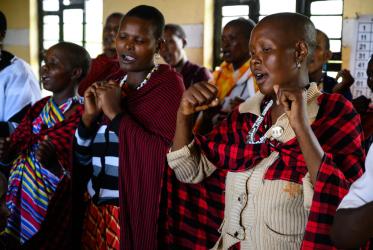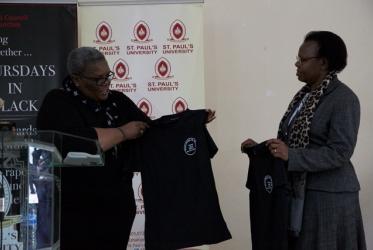Displaying 1 - 18 of 18
Rev. Kenneth Mtata reflects on journey of transition in Zimbabwe
20 September 2018
#WCC70: Fellowship of women and men – with ups and downs
17 August 2018
#WCC70: Churches as “freedom agents”
12 February 2018
#WCC70: Les Églises, des «agents de la liberté»
12 February 2018
Overcoming discrimination to address HIV in Zimbabwe
11 November 2015










